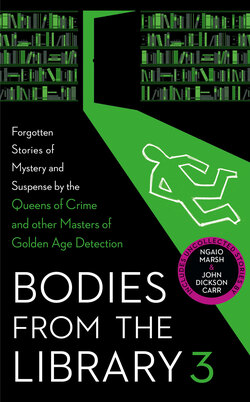Читать книгу Bodies from the Library 3 - Группа авторов - Страница 10
ANTHONY BERKELEY
ОглавлениеAnthony Berkeley Cox (1893–1971) is one of the most important writers of the Golden Age. Cox had a playful approach to the business of writing crime and detective fiction. His penchant for twisting tropes and confounding expectations undoubtedly played a major role in the genre’s development away from a simple linear narrative—in which characters are introduced, a crime is committed, clues are solved and the criminal is detected—into a more complex form in which almost anything can happen. Cox’s ‘great detective’, Roger Sheringham, is virtually the antithesis of Sherlock Holmes, arrogant rather than showily omniscient and unlikeable rather than unclubbable. Nonetheless, with only a few lapses from greatness, the detective stories that Cox wrote as ‘Anthony Berkeley’, as well as the smaller number of psychological thrillers published as by ‘Francis Iles’, should be on the bookshelf of anyone who professes to love crime fiction.
Cox was born in Watford, north of London, and educated at Sherborne, a boarding school in Dorset. After school he went to Oxford and after coming down in 1916 with a Bachelor of Arts degree from University College, Oxford, he enlisted in the British Army, serving in France. After being demobbed, Cox embarked on a career as a humourist, producing countless short stories and comic sketches for a huge range of magazines while, working with J. J. Sterling Hill, he expanded a twenty-minute vignette into a futuristic opera, The Merchant Prince. He also started to write crime fiction, exclusively so once he found it paid better than other genres. His earliest novels were published anonymously and Cox’s career took off with the publication as ‘Anthony Berkeley’ of Roger Sheringham and the Vane Mystery (1927) and, as A. B. Cox, Mr Priestley’s Problem (1927), which he went on to adapt for the stage the following year as Mr Priestley’s Night Out. Cox was never without a sense of humour and in all of his Anthony Berkeley novels his tongue is firmly in his cheek, a tendency deplored by some contemporary reviewers. As well as incorporating humour and taking an iconoclastic approach to the genre’s ‘rules’, Cox found the history of crime a ready source of inspiration, using several infamous crimes as the starting point for a detective story. He also broadcast on the BBC and its predecessor 2LO. Finally, as the self-styled ‘first freeman’ of the Detection Club, the dining society for crime writers that he and others had created in 1929, Cox played a key role in developing ideas to raise funds, including an anthology of crime writing as well as the Club’s novel The Floating Admiral (1931) and other multi-authored stories.
Cox never made any secret of the fact that his motivation was money and at the end of the 1930s he stopped writing crime fiction when he found that he could be paid well for simply reviewing it, which he did up until shortly before his death in 1971. Since Cox’s death his books have drifted in and out of print, but many will be familiar with his Francis Iles book Before the Fact (1932) in the form of one of Hitchcock’s most successful films, Suspicion (1941) with Cary Grant and Joan Fontaine, as well as the late Philip Mackie’s superb 1979 serial for the BBC of Malice Aforethought (1931), starring Hywel Bennett.
‘Hot Steel’ was one of two syndicated stories written specially to raise awareness of the dangers of loose chatter during the Second World War. The story was published in the Gloucester Citizen on 27 April 1943, with the postscript: ‘Do you work in a munitions factory? If so, do you ever drop hints about the work you are doing? Don’t! What may seem only a hint to you may be a whole explanation to someone else. And there are dangerous people about, you know.’
